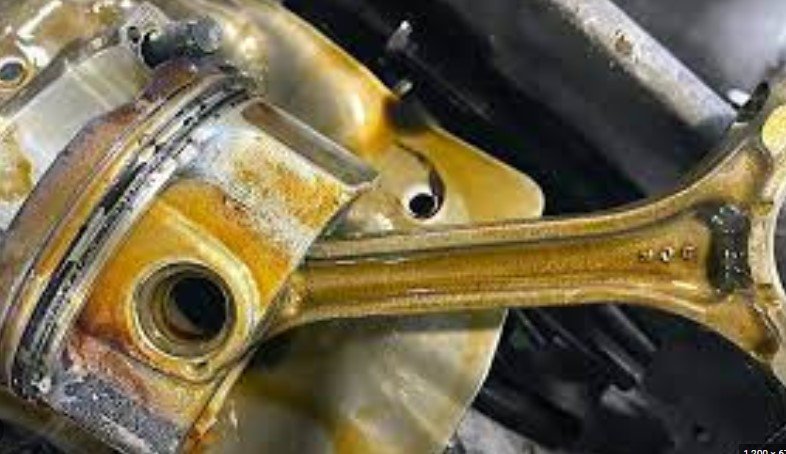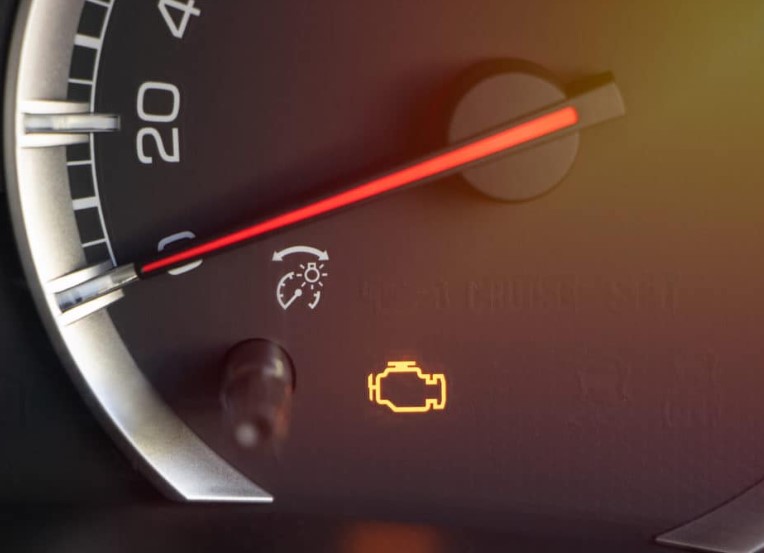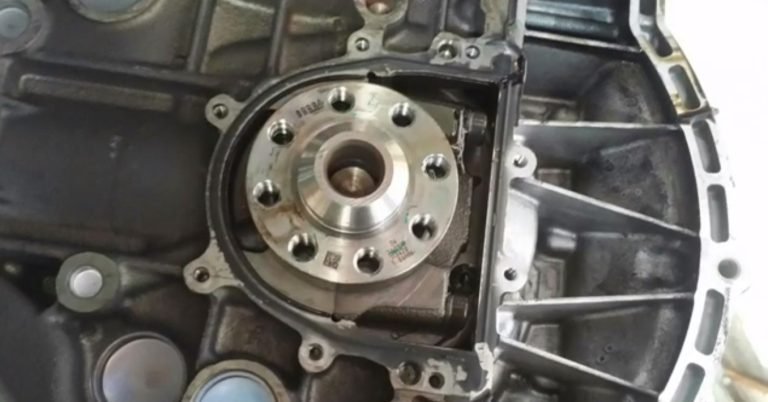2002 Toyota Highlander Problems – 7 Easy Solutions
2002 Toyota Highlander is a popular vehicle that offers a comfortable ride, excellent reliability, and huge space. But you may face some common 2002 Toyota Highlander problems while using or driving this vehicle.
The general issues that almost every Toyota owner reports are failed engines, high oil consumption, check engine light, and low gas mileage. Toyota Highlanders’ other problems are oil sludge, stuck accelerator, and speed control problems.
Today’s guide will closely examine the 2002 Toyota Highlander’s most common issues. So, let’s start:
2002 Toyota Highlander Problems – 7 Easy Troubleshooting Tips
The major troubles with 2002 Toyota Highlanders, their causes, and solutions are:
1. Engine Failure
2002 Toyota Highlander’s most common but significant issue is engine failure. The failed engine causes overheating and other problems within your car, as it is the vehicle’s heart.
After running your vehicle, if you face any engine trouble, you can’t compromise it. And you must fix your Toyota’s bad engine immediately.
What Causes Engine Failure?
There are several issues that cause engine failure in your car. And those are:
i. Poor Lubrication
Your vehicle’s engine needs to receive sufficient oil between every moving part. The poor lubrication causes the engine’s unnecessary friction, engine seizing up, and overheating.
ii. Oil Pump Failure
The oil pump failure is a serious issue for your Toyota car’s lifespan. The failed oil pump certainly almost starved your vehicle engine’s necessary lubrication.
iii. Leaking Engine Coolant
Leaking engine coolant is a common cause of your Toyota vehicle’s engine failure. If the engine coolant becomes low continually, it’s surely a fire signal. Dirt or debris build-up within the coolant causes engine leak.
How To Fix Engine Failure On Your Toyota Highlander?
- Periodically service your vehicle’s engine, including its regular oil changes.
- Make sure the engine oil is of a genuine viscosity that you use in your engine. It makes the oil light enough. And ultimately, oil flows fastly through the pump.
- Ensure the engine coolant is free of dirt and debris. It will help to maintain a safe operating temperature.
2. Excessive Oil Usage
High-quality oil lubricates engine components, filters out impurities, releases heat, and enhances engine sealing. In all these ways, the oil maximizes the performance and lifespan of your vehicle’s engine.
But excessive oil consumption is bad for your engine health. It’s another issue with the 2002 Toyota Highlander that the users often report.

What Causes Excessive Oil Consumption?
Your 2002 Toyota Highlander can start consuming oil in excessive amounts suddenly due to the following reasons:
i. Poor Quality Oil
You need to use specific lubricant blends for different engines. Using poor-quality oil for your Toyota car can damage the engine’s internal parts. For example, your car’s engine is damaged due to low oil viscosity as it increases heat and friction.
ii. Old Engines
Oil consumption is lower in new engines. But with constant use, your car’s engine components deteriorate over time. The deteriorated engine components cause small leaks that cause faster oil consumption.
iii. Damaged Piston Rings
Piston rings seal the cylinder wall and the piston’s gap. But when the piston rings become damaged, it causes higher oil consumption. Slowly the engine oil passes through them. And consequently, the oil enters slowly into the internal combustion chamber.
How To Fix Your Toyota Highlander’s Excessive Oil Consumption Issue?
- Check for a leak if you notice your car’s excessive oil consumption. If there is any leak, fix it.
- Use high-quality oil in your car and change the oil frequently on time
- If your car’s engine becomes old, replace it as soon as possible
- Check the piston rings and replace the damaged rings.
3. Check The Engine Light
The 2002 Toyota Highlander’s most frequently misunderstood light is the check engine light. It is the critical onboard diagnostics system’s parts. The check engine light can appear on your car in different ways. Your car can say “Check Engine” or show the engine’s symbol.

What Causes Check Engine Light On Your Toyota Highlander?
There are countless potential causes of illuminating check engine light on your Toyota Highlander. But the most common causes are the following:
i. Mass Airflow Sensor Malfunction
Your Toyota Highlander’s mass airflow sensor determines how much fuel your car requires to run its engine effectively. Also, this airflow sensor helps your vehicle to adjust to numerous changes like altitude. But when this sensor becomes bad, your car shows the engine light.
ii. Loose Gas Cap
The gas cap in your 2002 Toyota Highlander serves different purposes. It prevents the release of dangerous gas when you stop driving a car. Now if the gas cap becomes damaged, loose or missing, it causes the appearance of a “Check Engine Light” on your car.
iii. Faulty Spark Plugs
Your 2002 Toyota Highlander engine’s crucial part is the spark plugs. It ignites the fuel/air mixture in your vehicle’s combustion chamber. The spark plug wires deliver the spark from the ignition coil to the plugs.
Your car engine performs poorly, or the engine power gets reduced when the spark plug wires become old or bad.
How To Fix Check Engine Light On Your Toyota Spark Plugs?
- Check the mass airflow sensor and replace the bad one
- Replace the defective spark plugs and damaged gas cap
- Tighten the loose gas cap
4. Poor Gas Mileage
The sudden drop in fuel efficiency or poor gas mileage is another common trouble with the 2002 Toyota Highlander. Low gas mileage significantly affects your car’s performance.
What Causes Poor Gas Mileage On Your Toyota Highlander?
Dozens of factors are responsible for your Toyota Highlander’s low gas mileage. A few of the reasons are:
i. Dirty Oxygen Sensor
The dirty oxygen sensor causes drops in miles per gallon, rough idle, and failed emission tests. The oxygen sensor measures the exhaust gas’s leanness or richness. But the filthy sensor fails to measure it. And it causes your Toyota Highlander’s poor gas mileage.
ii. Bad Spark Plugs
Your Toyota Highlander car’s important part is the spark plug. It ignites the fuel in your car’s combustion chamber.
The incorrectly working or dirty spark plugs can lead to poor engine performance and cause the engine to misfire. It can ultimately lead to a huge decline in fuel efficiency and a lack of power.
How To Fix Toyota Highlander’s Poor Gas Mileage?
- Inspect the oxygen sensor. If it is dirty, clean it. And if it is bad, replace it.
- Replace your car’s faulty spark plugs.
5. Oil Sludge
Toyota Highlander’s first generation, like 2002, with a V6 engine, has excessive oil sludge build-up issues. The 2002 Toyota Highlander uses the 3.0 liter 1MZ FE engine. And oil sludge is a common issue with this engine.
What Causes Oil Sludge in Toyota Highlander?
Usually, after several years of use, the oil sludge occurs in the first-generation Toyota Highlander. The following factors cause this hitch:
i. Infrequent Oil Changes
After driving for a certain number of miles, you must change your Toyota’s oil. But if you fail to change the oil frequently, it can cause oil sludge in your car.
ii. Using Your Toyota Only For Short Trips
Using your 2002 Toyota Highlander only for short trips and keeping it in your garage can cause oil sludge. The oil fails to reach the proper operating temperature when you drive your car only for short distances.
Ultimately, it prevents burning exhaust gas and moisture from the crankcase. Thus it mixes with the oil, and it turns into sludge.
iii. Low-Quality Oil
Using poor-quality oil is another reason for which the oil sludge in your vehicle. Poor quality oil damages your car’s engine quality also.
How To Fix The Oil Sludge Issue On Your Car?
We recommend you try the solutions below to reduce the oil sludge amount and prevent the engine’s further damage.
- First off, clean out your car’s oil sludge by dropping the oil pan
- Remove the dirt from the oil filter screen
- Frequently between 1,000 – 3,000 miles, change the oil until you see the improvement sign
- Use your car regularly both for the short and long trips
6. Speed Control Problems
Suppose you are driving your Toyota Highlander at a constant speed of nearly 45 mph. But suddenly, your vehicle’s speed increases. And your car skids sideways and launches to the right.
Sudden speed changes can cause a severe accident, another significant problem with the Toyota Highlander car.
Why Won’t Toyota Highlander Speed Control Work?
You can face speed control problems with your car due to the following reasons:
i. Failing Brake Pedal Switch
After pressing the brake pedal, the switch turns on your car’s brake lights when it senses. The speed control is wired to your car’s brake pedal switch. Your car may allow the speed control system to work when this switch fails.
ii. Defective Speed Sensor
Your Toyota Highlander’s speed sensor indicates your vehicle’s speed, regulates the ignition timing and fuel flow, and operates the speed control. Your car’s speed control won’t work when the speed sensor becomes bad.
iii. Faulty Fuse
Your car’s fuse becomes blown when it senses a short circuit. Once the fuse becomes bad, your car’s speed control will stop working together.
How To Fix Your Toyota Highlander Speed Control Problems?
- Check and replace the failing pedal switch. Doing it by yourself is difficult. Therefore we recommend you contact a professional car mechanic to fix it.
- Replace the defective speed sensor and bad fuse.
7. Stuck Accelerator
2002 Toyota Highlander users claim that while driving their vehicle, the accelerator pedal suddenly gets stuck and won’t release. After removing the floor mats, the car accelerates rapidly and continuously.
The gas pedal or accelerator pedal controls your car’s acceleration and engine’s fuel flow. The stuck accelerator becomes unresponsive, and without your input, it increases your vehicle’s speed.
Why Accelerator Gets Stuck On Your Car?
For the following reasons, your car’s accelerator pedal gets stuck.
i. Malfunctioning Accelerator Pedal
When your Toyota Highlander accelerator pedal becomes defective, it is called “Sticking.” The defective accelerator pedal fails to follow your foot command. And it can cause serious accidents.
ii. Too Close Floor Mat
When the acceleration pedal is too close to a floor mat, it causes pressure on your car’s pedal. It remains stuck even if your foot isn’t pressing on your car’s accelerator pedal. So it can lead to an accident.
iii. Defective Electronic Control System
Your Toyota Highlander’s acceleration can get stuck due to the malfunctioning electronic control system. The electronic control system has an immense impact on the gas pedal. So any issue with the control system ultimately affects it.
How To Fix A Stuck Accelerator On Your Toyota Highlander?
If you notice a stuck pedal, call the experts for help and prevent the accident risk.
- Replace the faulty accelerator pedal
- Ensure the floor mat is not too close to the accelerator
- Check and fix your car’s engine control system
FAQ
How Many Miles Will A 2002 Toyota Highlander Last?
The 2002 Toyota Highlander will last for 300,000 miles.
What is the most common problem with Toyota Highlander?
Toyota Highlander’s most common issues are engine failure, excessive oil use, check engine light, oil sludge, etc.
Is the 2002 Toyota Highlander fuel efficient?
Yes! 2002 Toyota Highlander is fuel-efficient as it offers standard gas mileage.
Final Thoughts
And that’s the end! Throughout this comprehensive guide, we have explained all the responsible factors causing the 2002 Toyota Highlander Problems and their solution. If you face any of the above troubles, contact an expert car mechanic to fix them.
Usually, the 2002 Toyota Highlander is a reliable car. But after using it for years, it’s obvious that you can face all the above problems. If you ever experience these issues, don’t worry. Solving them is also possible.







